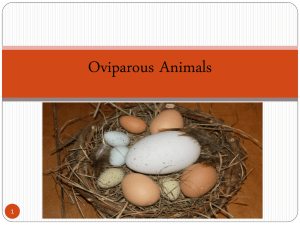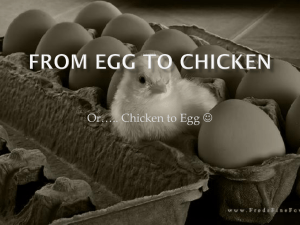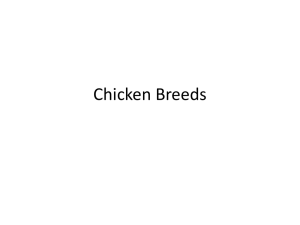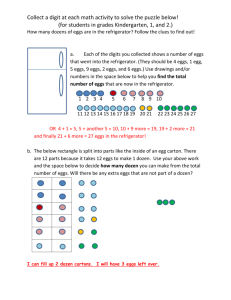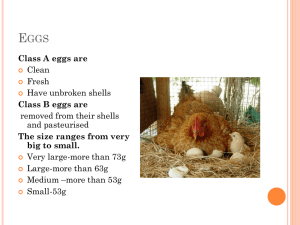Frequently Asked Questions [MS Word Document - 34.6
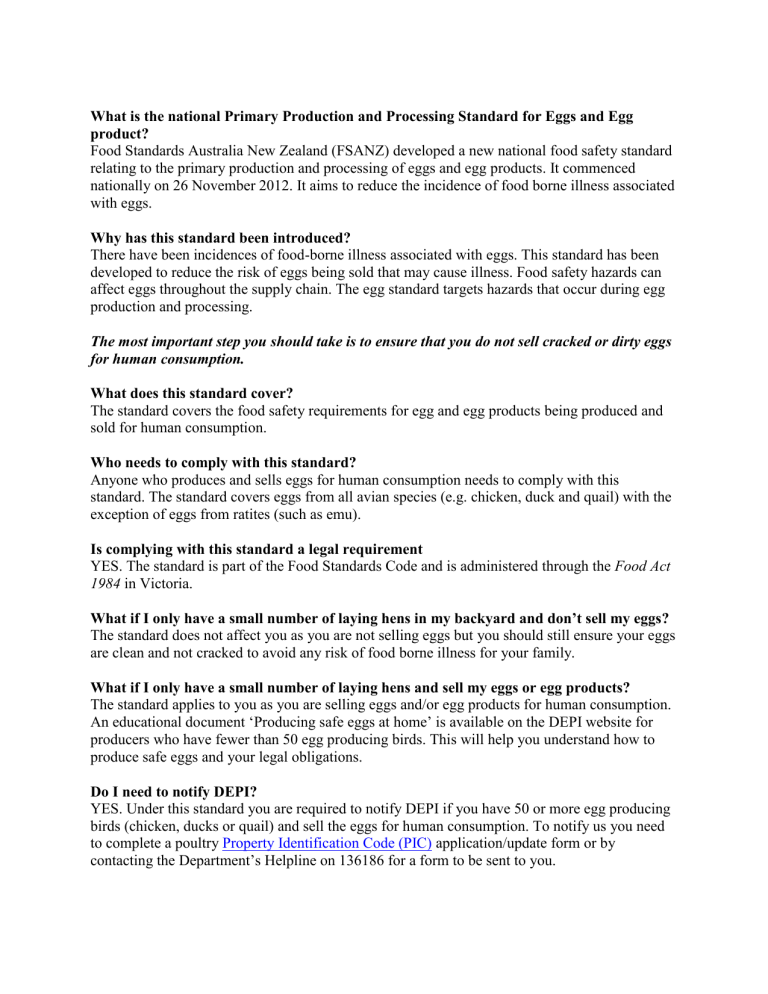
What is the national Primary Production and Processing Standard for Eggs and Egg product?
Food Standards Australia New Zealand (FSANZ) developed a new national food safety standard relating to the primary production and processing of eggs and egg products. It commenced nationally on 26 November 2012. It aims to reduce the incidence of food borne illness associated with eggs.
Why has this standard been introduced?
There have been incidences of food-borne illness associated with eggs. This standard has been developed to reduce the risk of eggs being sold that may cause illness. Food safety hazards can affect eggs throughout the supply chain. The egg standard targets hazards that occur during egg production and processing.
The most important step you should take is to ensure that you do not sell cracked or dirty eggs for human consumption.
What does this standard cover?
The standard covers the food safety requirements for egg and egg products being produced and sold for human consumption.
Who needs to comply with this standard?
Anyone who produces and sells eggs for human consumption needs to comply with this standard. The standard covers eggs from all avian species (e.g. chicken, duck and quail) with the exception of eggs from ratites (such as emu).
Is complying with this standard a legal requirement
YES. The standard is part of the Food Standards Code and is administered through the Food Act
1984 in Victoria.
What if I only have a small number of laying hens in my backyard and don’t sell my eggs?
The standard does not affect you as you are not selling eggs but you should still ensure your eggs are clean and not cracked to avoid any risk of food borne illness for your family.
What if I only have a small number of laying hens and sell my eggs or egg products?
The standard applies to you as you are selling eggs and/or egg products for human consumption.
An educational document ‘Producing safe eggs at home’ is available on the DEPI website for producers who have fewer than 50 egg producing birds. This will help you understand how to produce safe eggs and your legal obligations.
Do I need to notify DEPI?
YES. Under this standard you are required to notify DEPI if you have 50 or more egg producing birds (chicken, ducks or quail) and sell the eggs for human consumption. To notify us you need to complete a poultry Property Identification Code (PIC) application/update form or by contacting the Department’s Helpline on 136186 for a form to be sent to you.
Does it cost anything to notify DEPI?
NO, there is no charge for notifying and having your details held by DEPI
The standard says that eggs have to be individually identified (stamped). Do I have to stamp my eggs?
The standard says that eggs have to be individually identified (stamped). Do I have to stamp my eggs?
In Victoria the requirement for eggs to be individually stamped will be introduced on 26
November 2014 with the following exemptions:
Chicken egg producers with fewer than 50 layer birds.
Duck and quail egg producers
How do I get a stamp code?
DEPI will allocate you a stamp code to use when you notify us of your business details.
To notify us you need to complete a poultry Property Identification Code (PIC) application/update form or by contacting the Departments Helpline on 136186 for a form to be sent to you
What stamp code do I use if I grade another producers eggs as well as my own?
This is a business decision between you and the other producers. You are required to have a traceability system (i.e. records) in place that identifies the farm where eggs are produced if asked by the regulator.
What labelling information do I need on my egg packages?
There is no change to the current requirements for labelling egg packages which at a minimum is; name and address of producer, a best before date (35 days from date of packing is recommended) and a form of identification such as lot identification or batch number. Address must be a physical address and not a Post Office Box.
What are the general food safety management aspects of the standard?
Egg producers must:
Systematically examine all production operations to identify potential food safety hazards
and implement control measures.
Have evidence to show that a systematic examination has been undertaken and that control
measures have been implemented.
Operate according to a food safety management statement that sets out how food safety hazards are being controlled.
What is a food safety management statement?
A food safety management statement is a document that sets out how the standard is being complied with. DEPI has developed a Food Safety for Egg Producers document that includes a generic food safety management statement for your use.
Do I need a food safety management statement?
YES. Anyone who produces and sells eggs must have and follow a food safety management statement with the following exemptions:
Chicken egg producers with fewer than 50 layer birds.
You are in the AECL Egg Corp Assured (QA) program that has been recognised by DEPI.
You must be able to produce your food safety management statement if asked to do so by the regulator.
Do I need to keep records?
You must be able to produce records, if asked, to show you are complying with the standard,
Record sheets which you may choose are available on the DEPI website. In most cases diary entries, sale and supply dockets will suffice.
What if I sell eggs to the public from a temporary food premises, such as markets?
You must obtain permission from your council to operate. Information can be found on the
Department of Health website ( www.health.vic.gov.au
) or contact your local council.
What if I process (pasteurise/dry) other producers’ eggs and do not produce eggs myself?
You are classed as a food business under the Food Act 1984 and are required to operate under a food safety program. Information can be found on the Department of Health website
(www.health.vic.gov.au).
Where can I find more information on the standard and producing safe eggs?
Department of Environment and Primary Industries website (
Department of Health website ( www.depi.vic.gov.au/eggs www.health.vic.gov.au/foodsafety )
)
Australian Egg Corporation Limited ( www.aecl.org
)
Victorian Farmers Federation Egg Group ( www.vff.org.au
).
Food Standards Australia New Zealand ( www.foodstandards.gov.au
)
